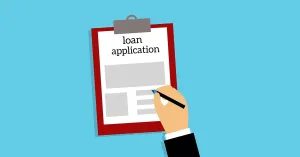There is one thing we can say without a doubt; the coronavirus has wreaked havoc on our world. Not only has it killed millions of people, but the pandemic has damaged the finances of so many. During times like these--with people out of work due to the closing of businesses that provided their livelihood and folks financially strapped--taking out a short term or payday loan can seem like a very attractive option.
MoneyThumb has many customers who are lenders of short term and payday loans and use our product, PDF Insights, to make quicker and smarter lending decisions. One bright spot during the pandemic response has been the heavily increased need for these types of lenders to offer their services.
Today on the Rules of Thumb blog, we would like to direct your attention to a great article from WalletHub. The article covers a study revealing the US states where small loans are most needed and offer interviews with financial experts on making smart lending decisions and where people can find the safest options for the short-term or payday loan.
Below is a list of the 4 financial experts WalletHub enlisted and the 3 questions they were asked:
Jesus M. Salas
Ph.D. – Associate Professor of Finance, Perella Department of Finance, Lehigh University School of Business
P.V. Viswanath
Ph.D. – Professor of Finance, Lubin School of Business, Pace University
J. A. Connell
CPA, CGMA – Associate Professor of Business, Stephens College of Business, University of Montevallo
Frank H. Shafroth
Director, Center for State and Local Government Leadership, George Mason University
- What are the long-term implications of taking a short-term loan in the context of the current economic crisis?
- What are the safest borrowing options for people in need of quick cash for financial emergencies?
- As the coronavirus pandemic has put millions out of work and overwhelmed the unemployment offices, what policy interventions can be taken by local authorities in order to help those in need financially during this economic downturn?
To learn the answers to the questions posed to the experts, click on this link to read their responses.
###
The above information is designed mostly for consumers, but what about small businesses? What loan options are available and how can a small business survive without depending on government intervention?
CNBC offers this article, Small Business Owners Worry They Won’t Survive Coronavirus Without Federal Loans, But Experts Say They Have Options from the Make It section of their website. We have listed below highlights from that article for your reading convenience:
1. Keep bringing in business
While it can be easy to give in to a panic, small business owners need to focus on establishing a plan of action and prioritizing which steps come first, says Joe Pascaretta, a small business expert with Dun & Bradstreet.
“It’s very easy to get distracted, with the media and with what your neighbor is doing, but you have to focus,” Pascaretta says. Business owners need to prioritize the essentials: managing their cash flow and keeping money coming into the business."
2. Limit expenses
Now is the time to hoard cash. That means cutting all non-essential expenses including company credit cards, travel, and employee 401(k) contributions, as well as putting a hold on any raises, bonuses, or overtime pay for workers. “You gotta do what you have to do.
3. Don’t navigate this alone
Most business owners have a network of experts that can help them navigate this challenging time, Pascaretta says. That includes any attorneys or certified public accountants you may work with. Schnall worked with his bookkeeper to gather and update all the paperwork needed to file for the PPP and EIDL loans.
4. Get creative
If your business is shut down right now, think about diversifying. “Offer different services,” Pascaretta says. For Haley Solar, owner of Haley Solar boutique in Los Angeles, the coronavirus pandemic proved to be a “huge shock to the system,” she tells CNBC Make It. She typically sells handmade clothing designed using upcycled fabrics and materials, offering alterations right in the store while customers wait.
5. Look beyond PPP and EIDL loan programs
While the PPP and EIDL loans are getting a lot of attention, there are other programs available that may be able to help small businesses. The U.S. Chamber of Commerce announced the Save Small Business Fund, which will provide $5,000 grants to small companies in economically vulnerable communities that employ between three and 20 workers.
6. Consider last resort options
For many small business owners, the company is their primary source of income. They’re “risking their fortune and their family’s safety net” if the business goes under, says Bob Prosen, a business crisis management advisor. And depending on how the business is set up, sole proprietors and those in a partnership could end up being personally responsible for business debts.
If your business is floundering, it may be time to consider some “last resort” options, Prosen says. One option is to consider mortgaging your home, either by refinancing or taking out a home equity line of credit. While this is not typically recommended, it could buy small business owners some time to get back on their feet, Prosen says.
7. Prepare for tomorrow
“We will live to fight another day,” Prosen says. “But you need to be smart and take control.” When the coronavirus pandemic ends, business owners need to be prepared, understand their financial situation, and maximize every opportunity. Even if you had to lay off and furlough employees, Pascaretta recommends staying in touch. If your business reopens, you may need those employees to willingly come back to work.





















Add comment